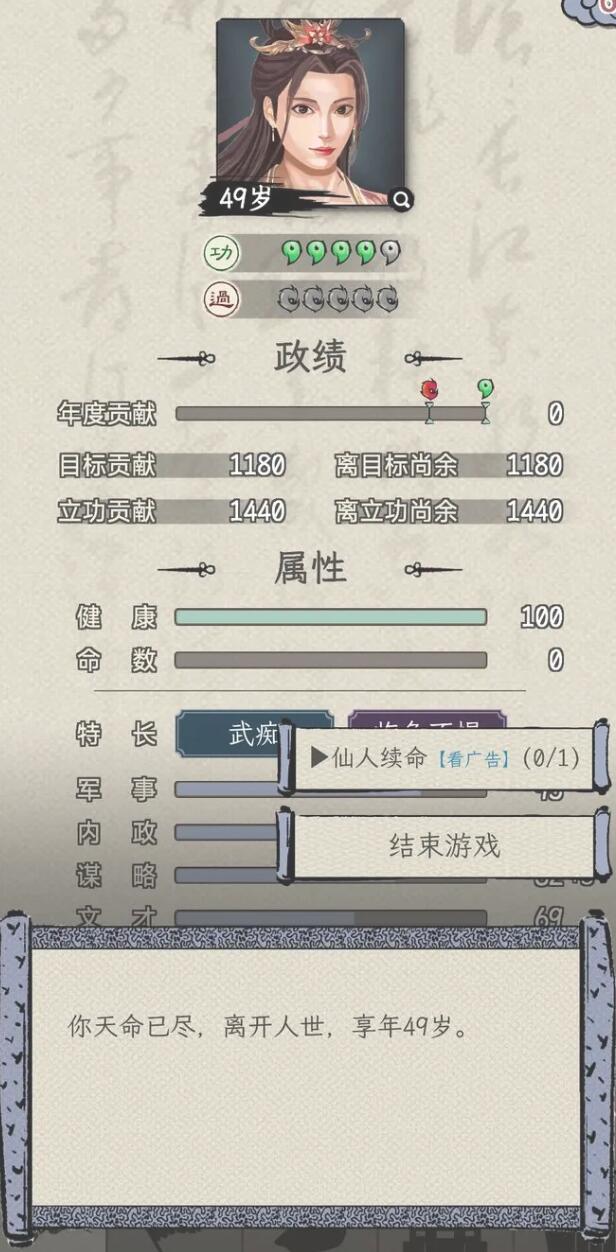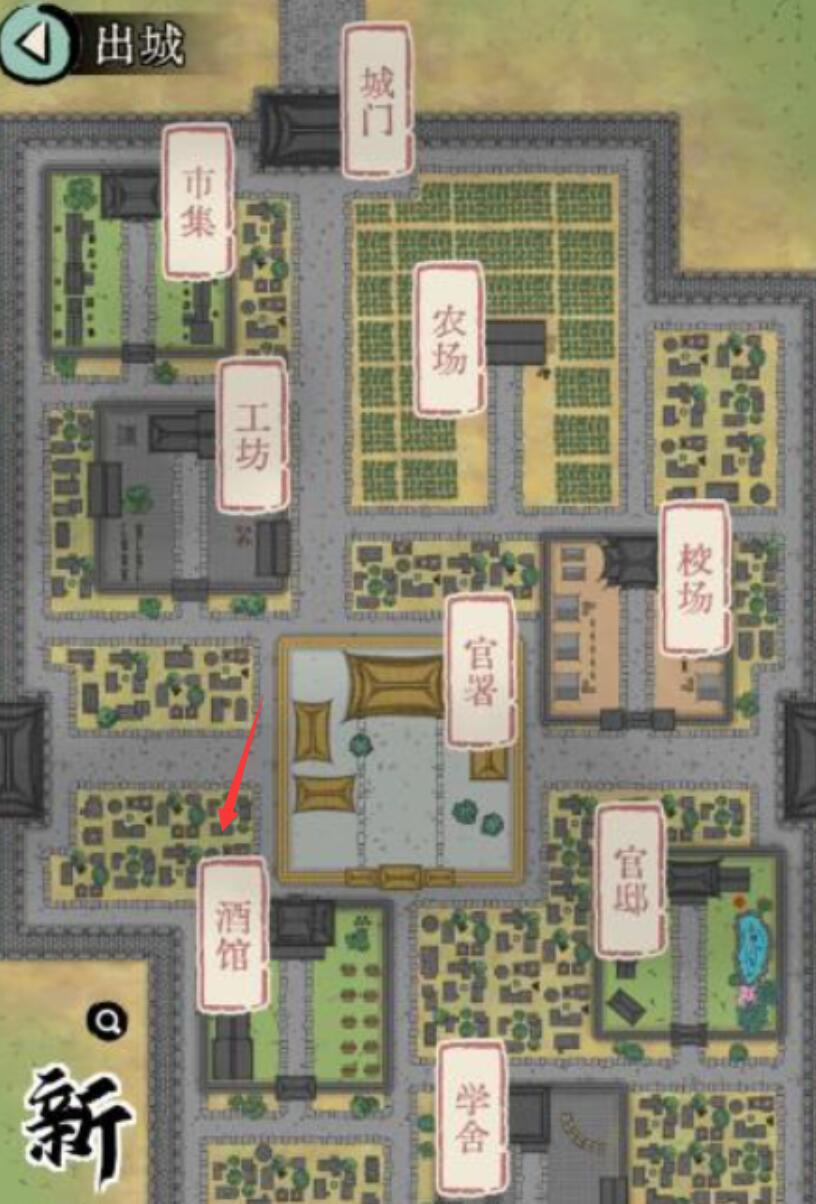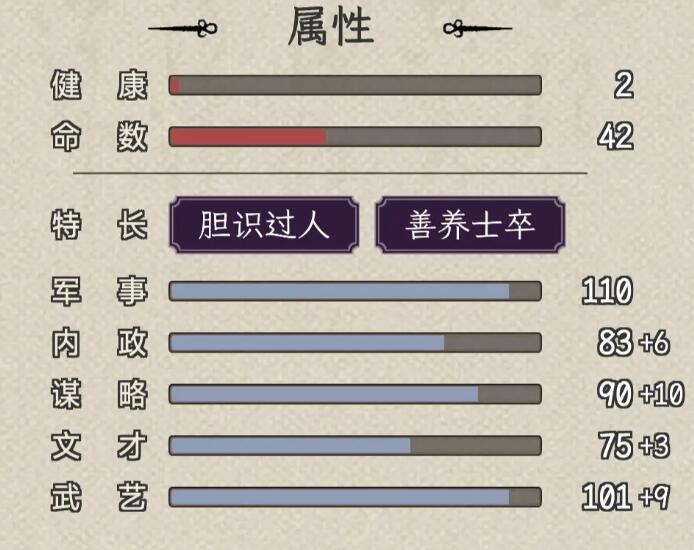Fate is the core value in the Three Kingdoms life simulation that determines the character's survival cycle, directly affecting the length of life and the probability of random events. Today, I will share with you how to increase fate in the Three Kingdoms life simulation. This value is usually stable but decreases when encountering events such as fortune-telling or taking medicine, requiring specific NPC services to maintain or improve. Proper management of fate can extend the character's survival time, providing more opportunities for us to unify the land.

Improving fate relies on the NPC Zuo Ci, whose location can be obtained by choosing to hear news at the tavern, and 2000 funds can be spent once a year to increase it. It is recommended to prioritize this operation after the character reaches 30 years old; otherwise, there may not be enough time, which can offset the health loss due to aging. The option to exchange books during the New Year can indirectly enhance fate through knowledge and skills, increasing literary talent or strategy attributes to reduce risks. In the early stages, it's best to prepare in advance to avoid having no room for error in the later stages.

Health naturally declines with age, and sudden death may occur if it falls below the character's age. At the beginning of each year, one can go to the tavern to find Hua Tuo for free acupuncture to restore health, ideally forming a dual insurance mechanism of health-fate. If funds are sufficient, it is recommended to simultaneously complete fate improvement and health maintenance to prevent a collapse in values due to sudden illness. Moreover, managing fate requires substantial financial support, so it is suggested to prioritize completing collection tasks (such as submitting double elm wood) or tavern commissions to quickly accumulate funds.

After reaching veneration in city influence, one can sell equipment or medicines at high prices in the market, avoiding unnecessary expenses (such as banquets for generals or weapon crafting), ensuring 2000 funds are reserved annually for fate. After becoming a governor or ruler, managing fate becomes even more critical. The transfer mechanism can marginalize the lord's power, reducing the fate-decreasing events caused by power struggles. If fate is critically low (such as below 50), using the SL big law can avoid random negative events. During the self-establishment phase, building an academy can improve attributes, reducing dependence on fate.

The fate system does indeed bring some survival pressure through resource consumption and NPC interactions, but regular health maintenance, precise fund allocation, and utilizing key mechanisms can fully extend the character's lifespan. Mastering the above strategies allows players to more easily handle the expansion of power in the mid-to-late game, avoiding process interruptions due to value collapse. Therefore, mastering the fate system mechanism is very necessary!


















